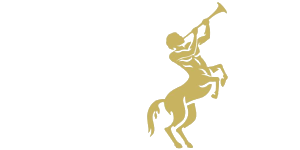-
"Survey return from John MacKellar"
Clachan, by Tarbert, Argyll.
1851.
RCP/COL/4/8/205
John MacKellar (also written as McKellar) was a medical practitioner in Clachan.
Clachan was a village within the united parishes of Kilcalmonell and Kilberry. For further information on the whole parish, see the entry for Kilcalmonell.
[[Addressee]]
John MacKellar, Esq
Surgeon
Clachan
by Tarbert
Argyll
[[Survey]]
Clachan By Clachan Argyllshire
20th Augt 18511
QUERIES
1. How long have you practiced in the locality you at present occupy?
9 years
2. What are the ordinary and what the greatest distances which you have to travel in visiting patients?
8 miles
is the ordinary distance that I have to travel to
visit patients
3. What means of conveyance do you employ in going long journeys?
I keep a riding Pony
4. What is the state of the roads in your neighbourhood?
The roads are pretty good in
general & Kept in tolerable repair.
5. Is the position of medical men in general in your quarter improved, or otherwise, of late years?
It is improved
To some in my neighbourhood but not so in my case
in consequence of partiality.
6. Supposing the people of the Highlands and Islands were generally able to pay for medical
advice, according to rates usually observed in other parts of the kingdom, what extent of
country in your locality would you regard as sufficient to occupy a single practitioner
fully?
A medical
man would require to [havs] of a country
ie 15 miles either way ie 30 miles of a circle From his abode before that
he could keep himself - and Pony free from debt.
7. Mention, if you please, any special hardships incident to your situation, such as you think
might be remedied by some general measure or enactment?
I thought always
that a Medical man duly qualified ought to be
in receipt of a yearly allowance, Similar to
the way in which the ministers of Religion are paid
and that money to be paid by the Heritors2 [residen]
in the way that the [funds] are collected.
[[Additional text]]
3Answer to
Query 5/ regarding partiality I may mention
that this parish is about 16 miles in length and
my residence is about the very centre of the
parish. But the Heritors and Parochial Board4
three years ago accepted the Government grant that
is allotted for medical men for attending paupers. Made 3 divisions
of the parish allowed me only one part, ie the 3d
of £25,,19,,6 and voted away The other 2 parts to one
that does not live in the parish +5
But in a contiguous parish so much for justice
Here - The Heritors give no encouragement –
here to a medical man and the tenantry that can or have the
means are about to Emigrate to some of the
British colonies and the most of the others are
petty cottars6, & [1 word illegible] paupers. What do you
think when they Heritors and parochial Board
that lie next to this parish, only give me
four lousy pounds per Annum for attending [1 word illegible]7
give medicine to their paupers, a parish 10 miles on [1 word illegible]8
and containing near 100 paupers ø9
ø As I said before the land ought to be
regularly taxed and so much allowed for a
medical man in each parish or in every two
parishes at the least, In the Highlands & Island of
Scotland And I remain
Gentlemen, your Obdt Sevt
John M.Kellar Surgeon
Explanatory notes:
1. Written at top of the queries page.
2. A heritor was a landowner, under Scots Law, whose holdings were sizeable enough for them to be liable for the payment of public burdens such as Poor Law rates, road and bridge assessments and the church minister’s stipend.
3. Continued on the bottom of the return address page.
4. Following the Poor Law Amendment (Scotland) Act of 1845 parochial boards were set up in each parish to administer poor relief.
5. Continued on the top of the return address page ‘+’ is used to link the text together.
6. A farm labourer or tenant occupying a cottage in return for labour.
7. The way the page is glued down obscures the word.
8. The way the page is glued down obscures the word.
9. Written at top of addressee page ‘ø’ is used to link the text together.
